Astronomy
-
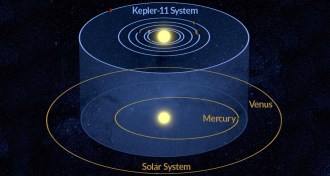 Planetary Science
Planetary ScienceEarth, neighbors weren’t the first rocky planets in the solar system
Jupiter might have swept an earlier generation of rocky planets into the sun, leaving room for Earth and its neighbors to form.
-
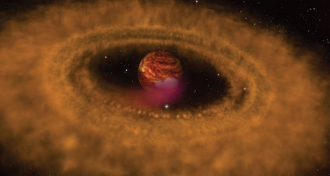 Astronomy
AstronomySolo planets may be surprisingly common
Rogue planets may form as stars do, but on a smaller scale, or they may go forced out of orbit during planetary ping-pong. Researchers are scanning the skies for them.
-
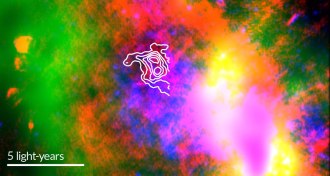 Astronomy
AstronomySpace dust is tough enough to survive supernova aftermath
Dust still lingers in the remnants of supernova that exploded 10,000 years ago, affirming that the explosions filled the early universe with dust.
-
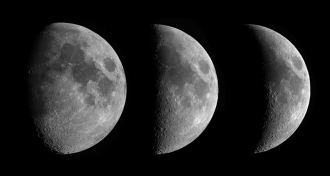 Astronomy
AstronomyFast-spinning young Earth pulled the moon into a yo-yo orbit
The early moon’s orbit created a cycle between lunar phases unlike the one seen nowadays.
-
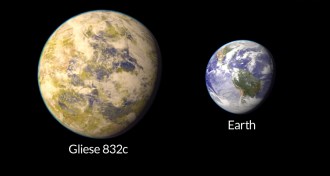 Astronomy
AstronomySuper-Earths may form in two ways
Rocky planets much heavier than Earth may form in different ways.
-
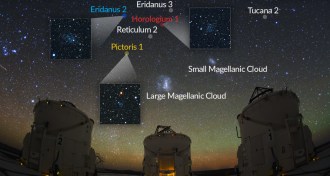 Astronomy
AstronomyAs many as nine new dwarf galaxies found outside Milky Way
A bevy of newly discovered satellite galaxies around the Milky Way could help astronomers study how galaxies form and the nature of dark matter.
-
 Computing
ComputingConcerns about drones, how to hunt exoplanets and more reader feedback
Readers discuss the potential impacts of human-made fliers and muse about the advantages a poker-playing computer program has over human opponents.
-
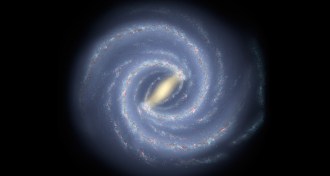 Astronomy
AstronomyRemote star clusters discovered on edge of Milky Way
Two newly discovered star clusters are the first ever seen at the remote edges of the Milky Way.
-
 Astronomy
AstronomySupernova hurls star out of the galaxy
The fastest-moving star to leave the Milky Way might have been launched by a nearby exploding star.
-
 Astronomy
AstronomyHubble telescope sees quadruple
A galaxy bends light to create four images of the same supernova.
-
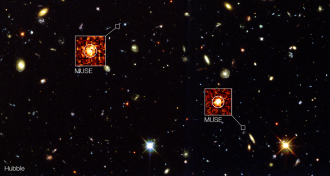 Astronomy
AstronomyHundreds of galaxies seen in a new 3-D view of the universe
A new instrument lets astronomers measure the distances to hundreds of galaxies at once, looking back across the age of the universe.
-
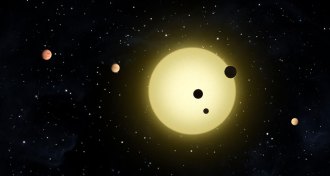 Astronomy
AstronomyPlanet collisions may have rearranged crowded solar systems
Solar systems discovered by Kepler with just one or two worlds may be remnants of planet families that were once far more crowded.